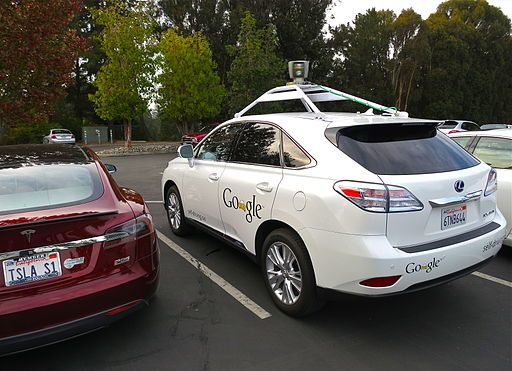Telecoms and tech driving auto revolution
Electric cars have long been seen as a key strategy in cutting emissions and reducing global warming. Despite numerous developments and ingenious inventions, however, the automobile sector continues to be dominated by traditional car companies. This would seem to make sense, however , the future could paint a very different picture.

Electric cars have long been seen as a key strategy in cutting emissions and reducing global warming. Despite numerous developments and ingenious inventions, however, the automobile sector continues to be dominated by traditional car companies. This would seem to make sense, however , the future could paint a very different picture.
French bank, Exane BNP Paribas, believes that the intelligent vehicle market will grow to be worth 50 billion dollars over the course of the next decade - a projection that will get investors twitching in their pockets. It is, however, likely to be tech and telecoms companies who reap the benefits.
Infineon and Google are among the numerous tech companies already involved in the sector, with the rapid development of intelligent vehicles - cars that can drive by themselves. There is also progress being made with the integration of mobile phone apps into car dashboards, enabling telecoms companies to target the sector more comprehensibly. With just 10% of vehicles today boasting connectivity, there is huge scope for automobile tech growth, with the figure more likely to be 90% by 2020, according to British consulting firm Machina Research.
The intelligent vehicle sector is developing not as a supplement to the traditional market, but rather as a new entity altogether. This is providing great opportunities to smaller niche companies, such as the French engineering firm, AKKA technologies, which has seen its stock soar nearly six-fold over the past five years. Focused on a fully intelligent electric vehicle, it is this independent approach that appears to be attracting the most interest. This is despite numerous large car firms, such as Audi, Toyota and Volkswagen, also embracing developments in the industry.
Honda are one of the large car firms seemingly making giant strides towards easy to use electric vehicles, with news last month of a new self charging/self driving vehicle. The Honda Fit EV continues from where the recent Toyota Prius Plug-in Hybrid left off, with regards to an inductive charging system, but takes things one step further, with the ability to drive itself onto the charging pad. Once it does so, charging begins automatically, making the process completely hassle free for the consumer.
There has also been impressive developments with regards to the distance electric vehicles can cover on a single charge, with a car from the Israeli firm Phinergy covering an impressive 1,100 miles during testing. Oxygen present in the vehicle is the crucial ingredient, used to power the batteries in the place of the heavier liquid-filled battery cathodes. More work is needed, however, to enhance the lifespan of the batteries, which currently need to be replaced every few months.
A recent report by the UK Department for Transport reveals just how far there is still to go in gaining consumer confidence, however, with just 6% of full license holders surveyed suggesting that they were thinking of purchasing an electric vehicle. Alarmingly, more than two-thirds had not even considered it. With the first three reasons stated relating to the process of charging, the distance travelled on a single charge and cost, focus must continue to be given to such areas. The number of electric and hybrid vehicles on UK roads has, however, now reached 10,000 and there are suggestions this is growing year on year.
There are strong warnings from many experts in the sector that the vision of intelligent vehicles is no longer a distant dream, but a current reality, with money to be lost or gained within the next five years. This applies to mapping experts, such as TomTom and Nokia; chip makers, such as Infineon and Texas Instruments and the manufacturers of the various specialist components the sector will also demand. When it comes to taking the giant leap into fully intelligent vehicles, the playing field is seemingly wide open.






